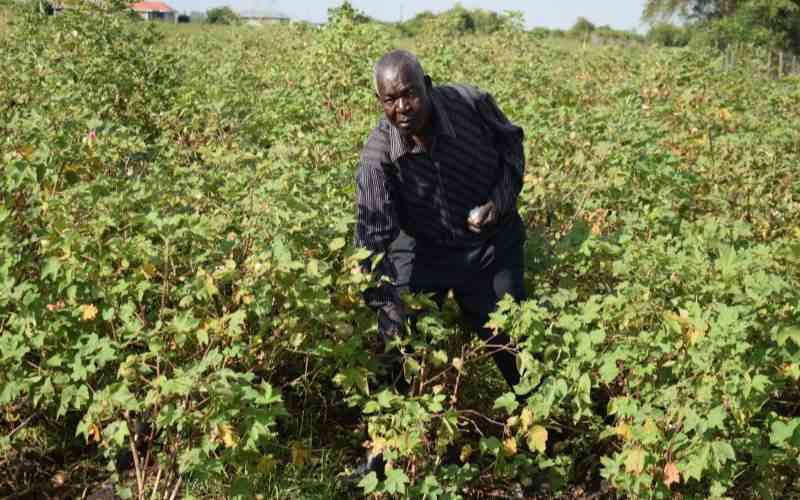×
The Standard e-Paper
Home To Bold Columnists

Cotton Farmer Richard Apiyo Oloo was harvesting cotton in his farm at Angalo village, Arujo Location in Homa Bay Sub-count. [James Omoro, Standard]
Once upon a time, cotton farming in Homa Bay was so vibrant, every other home had a cotton farm. Things were working. The farmers were being paid on time and life was good. Then the decline started.







